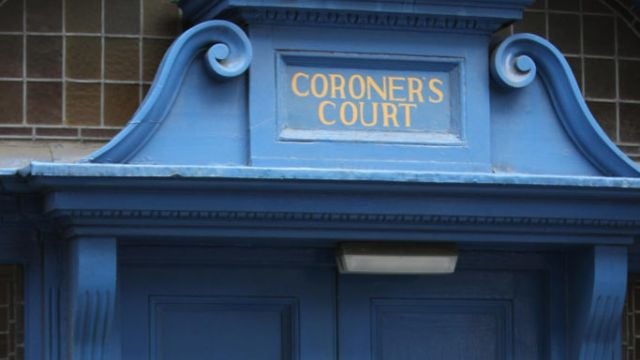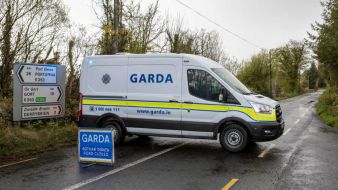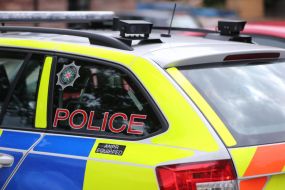A Meath teenager took her own life three months after being drugged and raped while on holiday in Greece, an inquest has heard.
Julie Crowe (18), from Porterstown Lane, Dunshaughlin, Co Meath, died on November 4th, 2019.
A sitting of Dublin District Coroner’s Court on Thursday heard the tragic circumstances of how Julie had developed a low mood and thoughts of self-harm after being drugged and raped while on holiday abroad with friends in August 2019.
The inquest was also informed that gardaí had received no further feedback about the progress of any criminal investigation in Greece, despite several requests after providing a statement by Julie to their Greek counterparts via Interpol.
Julie’s father, Gary Crowe, told the inquest he had decided to work from home on the morning of November 4th, 2019, as his daughter had not slept.
Mr Crowe recalled she was groggy and appeared “very subdued and very detached” when he woke her around 12.20pm.
He said she apologised for the expense of a trip to the US from which they had recently returned.
Mr Crowe said he hugged his daughter to try and get her “out of a daze”.
As Julie went to have a shower, Mr Crowe said he noticed a note on her bed which he thought was part of a diary.
When he went to check on her at around 2.15pm, Mr Crowe said he could not find his daughter anywhere in the house before ringing his wife to express concern that Julie had run away.
Note
At that point, he remembered the note and found it contained a reference to Rathbeggan Lakes.
The inquest heard Mr Crown went to the flyover bridge and saw traffic pulling over on the motorway.
He then spotted his daughter lying on the ground and went and started CPR after noticing her eyes were “glazed over”. Others came and helped with her attempted resuscitation.
A passing motorist, Jonathan Madden, told the inquest how he had dialled 999 after he was travelling along the M3 and noticed a girl standing outside the railing of the flyover bridge.
Mr Madden said he exited the motorway at the next junction in order to get back to the bridge but that the girl was lying face down on the ground by the time he got to the scene.
The inquest heard it was a very wet day with poor visibility.
Garda Jeffrey Moroney said CCTV footage of the bridge had confirmed the evidence provided by eyewitnesses and that the investigation on the case had been closed.
Julie’s mother, Anna Crowe, gave evidence of formally identifying her daughter’s body to gardaí at Connolly Hospital Blanchardstown (CHB).
Fighting back tears, Ms Crowe said she had been phoned by her husband, Gary, at around 2.20pm to say that Julie was at the M3 bridge.
When she arrived at the scene, Ms Crowe said she found her daughter lying on the motorway.
She recalled holding Julie’s hand which was “very cold”, while she could not detect any pulse.
Ms Crowe said she and her husband waited in a patrol car, while paramedics attended to her before they were brought to the hospital.
The inquest heard the family were informed at 3.50pm by medical staff that Julie had suffered catastrophic injuries which she would not survive, and she was pronounced dead nine minutes later.
PTSD
Post-mortem results confirmed that Julie had suffered catastrophic head injuries consistent with a fall from a height.
In January 2020, Ms Crowe spoke about her daughter’s death on RTÉ’s Liveline programme as a warning to others that there were predators who were targeting young boys and girls.
She outlined how Julie realised from talking to friends that she had been raped during their stay on the Greek island of Zakynthos.
Omer Chaudhary, a psychiatrist who examined Julie in the emergency department of CHB on October 21st 2019, said he had diagnosed her as suffering post-traumatic stress disorder and a moderate depressive episode.
Dr Chaudhary said Julie had also come out to her friends as gay in June 2019 and to her family after she returned from her holiday in Greece.
He recalled that the teenager complained of not being able to cope with things for the previous two weeks and suffering increasing nightmares.
However, Dr Chaudhary said she had not shown any active intent or plan to kill herself.
The psychiatrist said she was positive about her family and her studies at Technological University Dublin.
He said Julie also recognised her symptoms and triggers and that she needed professional help to get better but believed she had a bright future.
The inquest heard that Julie declined to be admitted to the hospital on a voluntary basis, and she did not meet the criteria to be detained involuntarily as she was only considered a low-to-moderate risk of self-harm.
Dr Chaudhary said the teenager ultimately decided to attend her GP to discuss taking anti-depressant medication and to be referred to her local Child and Adolescent Mental Health Service unit.
Family doctor
Ms Crowe said Julie attended her family doctor the next day who warned that she would need to be closely monitored while on medication.
She also revealed that her daughter feared she might be pregnant as a result of the rape, but tests showed that was not the case.
Detective Garda Michelle O’Brien told the inquest that she had spent two “long and difficult” days taking a very detailed statement from the teenager about what happened in Greece.
Det Garda O’Brien said she had also kept the girl’s towel and runners for evidence.
In reply to questions from the coroner, Aisling Gannon, she said she had received no updates about the status of the investigation by Greek police, despite sending several requests.
Det Garda O’Brien said she could not engage directly with her Greek colleagues.
She also stated she could not interview Julie’s friends who might also be able to provide evidence unless she received a direction from the Greek authorities.
At the end of the evidence, the Crowe family called for greater clarity about the ability of gardaí to assist and to check on the progress of police investigations abroad.
They also recommended that organisations who deal with victims of sexual assault should engage with parents advocating for their children who had been raped regardless of their age.
Ms Crowe explained that the Dublin Rape Crisis Centre had been reluctant to speak to her about trying to get a more urgent appointment for her daughter because Julie was over 18 years and needed to make contact with them herself.
The coroner said she would raise the family’s concerns with the relevant authorities and keep them informed of any response.
Ms Gannon returned a verdict of death by suicide based on the evidence.
Offering her condolences to the Crowe family, the coroner said it was “a very, very tragic case in very sad circumstances.”
If you have been affected by any of the issues raised in this article, you can call the national 24-hour Rape Crisis Helpline at 1800-77 8888, access text service and webchat options at drcc.ie/services/helpline/ or visit Rape Crisis Help.







